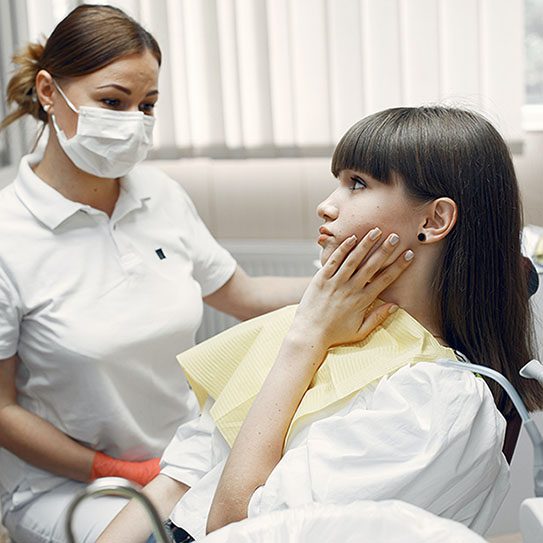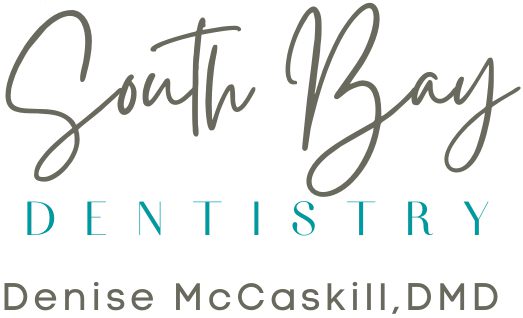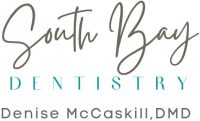
As we navigate through the uncertainties of daily life, unexpected dental emergencies can arise at any moment, causing discomfort and anxiety. Whether it’s a sudden toothache, a knocked-out tooth, or a broken dental restoration, knowing how to handle these situations promptly and effectively can make all the difference in preserving your oral health.
At South Bay Dentistry in Apollo Beach, we understand the importance of being prepared for dental emergencies. Here are some valuable tips to help you stay calm and take the necessary steps in case of an urgent dental issue in 2024.
Identify Common Dental Emergencies
Identifying the types of dental emergencies is crucial for understanding when immediate intervention is necessary. Here’s a comprehensive list of common dental emergencies, along with brief descriptions and recommended actions:
1. Severe Toothache
A severe toothache manifests as intense or persistent tooth pain, often accompanied by swelling or sensitivity to hot and cold temperatures. If you experience such discomfort, rinse your mouth with warm water to clean the area and use dental floss to remove any food particles. Avoid placing aspirin or painkillers directly on the gums. Contact South Bay Dentistry immediately for an emergency appointment to diagnose and treat the underlying cause of the toothache.
2. Knocked-Out Tooth (Avulsed Tooth)
When a tooth is completely displaced from its socket due to trauma or injury, it requires urgent attention. Handle the tooth by the crown (top part) and avoid touching the root. Rinse it gently with water if dirty, but do not scrub or remove any attached tissues. If possible, try to reinsert the tooth into its socket. Alternatively, store it in a container of milk or saliva to keep it moist and bring it to our office immediately for possible reattachment.
3. Cracked or Broken Tooth
A cracked or broken tooth can result from trauma, decay, or biting on hard objects. Rinse your mouth with warm water to clean the area and apply a cold compress to the outside of the mouth to reduce swelling and alleviate pain. Save any broken tooth fragments and bring them to our office for evaluation. Dr. Denise McKaskill will assess the extent of the damage and recommend appropriate treatment, which may include bonding, crowns, or root canal therapy.
4. Lost Dental Filling or Crown
Dislodgement or loss of a dental filling or crown exposes the affected tooth to decay or further damage. Avoid chewing on the affected side of the mouth and retrieve the lost filling or crown if possible. Apply dental cement or over-the-counter temporary dental adhesive to the exposed tooth surface to protect it until you can see Dr. McKaskill for a replacement restoration.
5. Soft Tissue Injuries (Lacerations, Cuts, or Tears)
Injuries to the soft tissues of the mouth, including the lips, cheeks, tongue, and gums, may result from accidental biting, falls, or trauma. Rinse your mouth with warm saltwater to clean the affected area and control bleeding. Apply gentle pressure with clean gauze or a damp tea bag to stop any bleeding. Seek immediate medical attention or visit the nearest emergency room for treatment if the injury is severe or accompanied by significant bleeding.
Have a Dental Emergency Kit
Prepare a dental emergency kit containing essential items such as sterile gauze pads, a small container with a lid, over-the-counter pain relievers like ibuprofen, dental floss, and a dental mirror. Keep this kit easily accessible at home, work, or during travel, so you’re ready to handle dental emergencies wherever you are.
Know When to Seek an Emergency Dentist
Understand the difference between routine dental issues and emergencies. While minor tooth sensitivity or a loose dental crown may not require immediate attention, severe pain, excessive bleeding, or trauma to the mouth necessitate prompt dental care. At South Bay Dentistry, we reserve same-day emergency dentist appointments during weekdays to address urgent dental concerns promptly.
Handle Dental Trauma with Care
In case of a knocked-out tooth, handle the tooth by the crown (the visible part) and avoid touching the root. Rinse the tooth gently with water if dirty, but do not scrub or remove any attached tissues. Place the tooth back into its socket if possible, or store it in a container of milk or saliva to keep it moist until you can reach our office.
Manage Pain and Discomfort
Dental emergencies often come with discomfort and pain. Over-the-counter pain relievers can help alleviate symptoms temporarily until you can see your dentist. Applying a cold compress to the affected area can also help reduce swelling and numb the pain.
Don’t Delay Treatment
If you experience a dental emergency, don’t wait to seek professional help. Delaying treatment can exacerbate the problem and lead to more extensive damage or complications. Contact South Bay Dentistry immediately to schedule a same-day emergency dentist appointment with Dr. Denise McKaskill, our experienced dentist in Apollo Beach.
Preventive Measures
While you can’t always predict when a dental emergency will occur, practicing good oral hygiene and attending regular dental check-ups can reduce your risk of experiencing urgent dental issues. Brush and floss daily, maintain a balanced diet, and visit our office for professional cleanings and exams to keep your smile healthy and resilient.
We Are Ready to Help
At South Bay Dentistry, your oral health and comfort are our top priorities. If you find yourself facing a dental emergency in 2024, trust our skilled team to provide prompt and compassionate care to alleviate your pain and restore your smile. Don’t hesitate to contact us during weekday business hours for same-day emergency appointments and expert dental treatment. Remember, being prepared is the first step towards overcoming dental emergencies with confidence and peace of mind.


